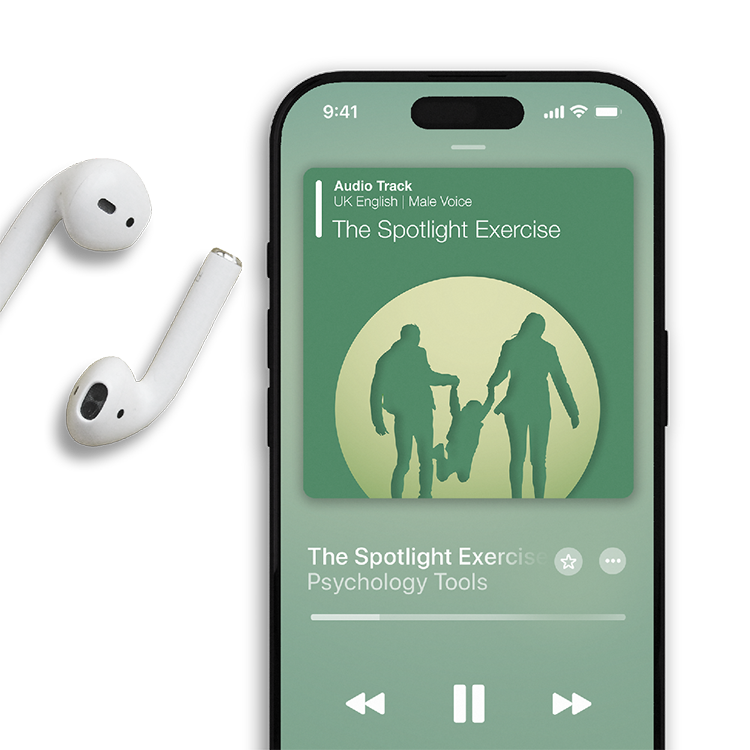Audio track (MP3)
A therapy audio track designed for skills development.
Audio script (PDF)
The script for a therapy audio track. Read along with an exercise, or record in your own voice.
The Spotlight Exercise is a practical tool for mental health professionals to help clients understand the power of attention through a simple yet effective metaphor and guided practice. Taken from the Psychology Tools For Developing Self-Compassion audio collection.

A therapy audio track designed for skills development.
To use this feature you must be signed in to an active account on the Advanced or Complete plans.
The script for a therapy audio track. Read along with an exercise, or record in your own voice.
To use this feature you must be signed in to an active account on the Advanced or Complete plans.

Self-compassion is a helpful skill for emotional well-being. The Psychology Tools For Developing Self-Compassion audio collection provides a structured approach to developing self-compassion using principles from compassion focused therapy (CFT). CFT is an evidence-based psychological approach that integrates evolutionary, cognitive, and affective neuroscience to help individuals cultivate compassion and alleviate high levels of shame and self-criticism.
The Spotlight Exercise uses a metaphorical illustration to help clients experience the dynamics of attention and awareness. This tool demonstrates how attention can be directed and redirected to different aspects of experience – much like moving a spotlight in a dark room. This understanding is foundational for developing mindfulness.
Just enter your name and email address, and we'll send you The Spotlight Exercise (English GB) straight to your inbox. You'll also receive occasional product update emails wth evidence-based tools, clinical resources, and the latest psychological research.
Working...
This site uses strictly necessary cookies to function. We do not use cookies for analytics, marketing, or tracking purposes. By clicking “OK”, you agree to the use of these essential cookies. Read our Cookie Policy